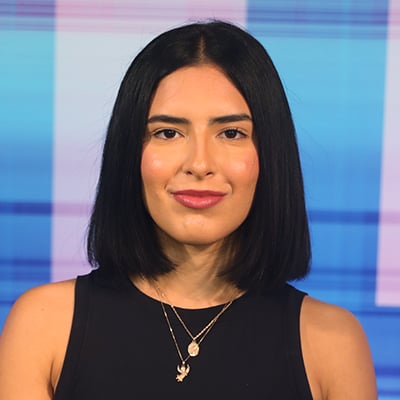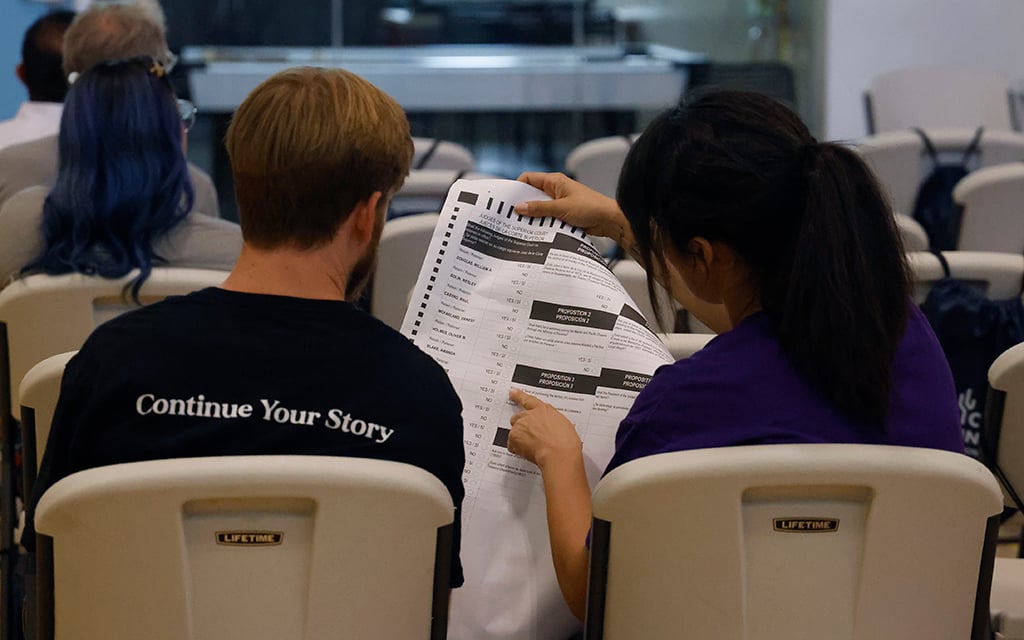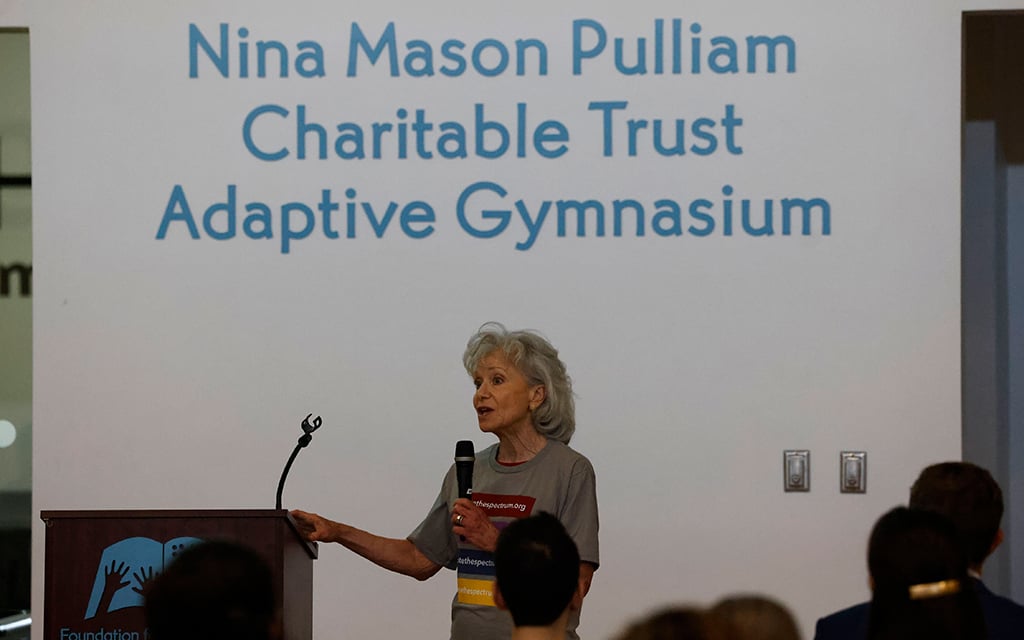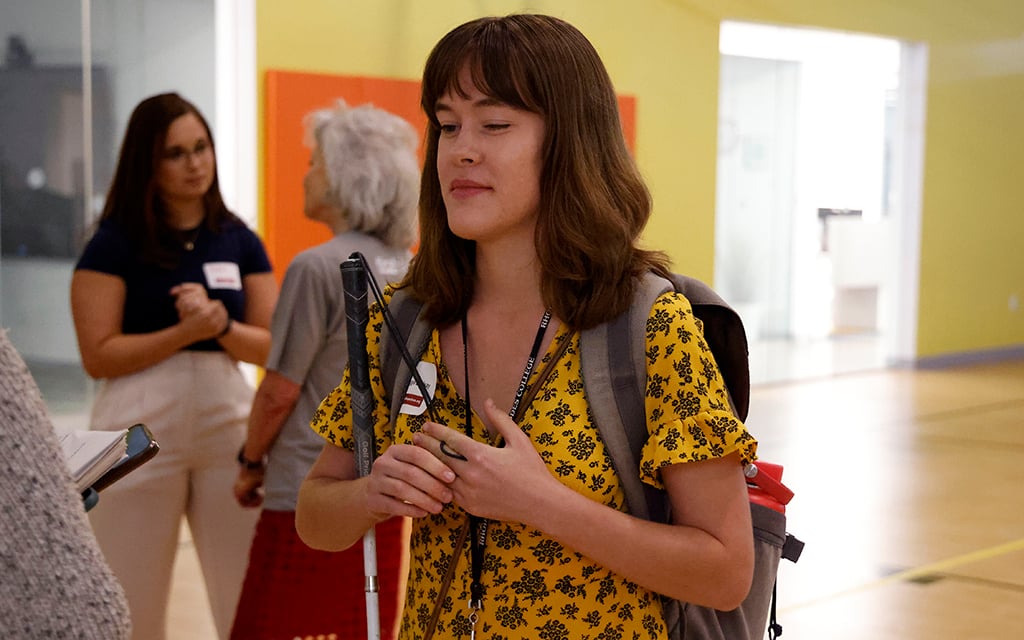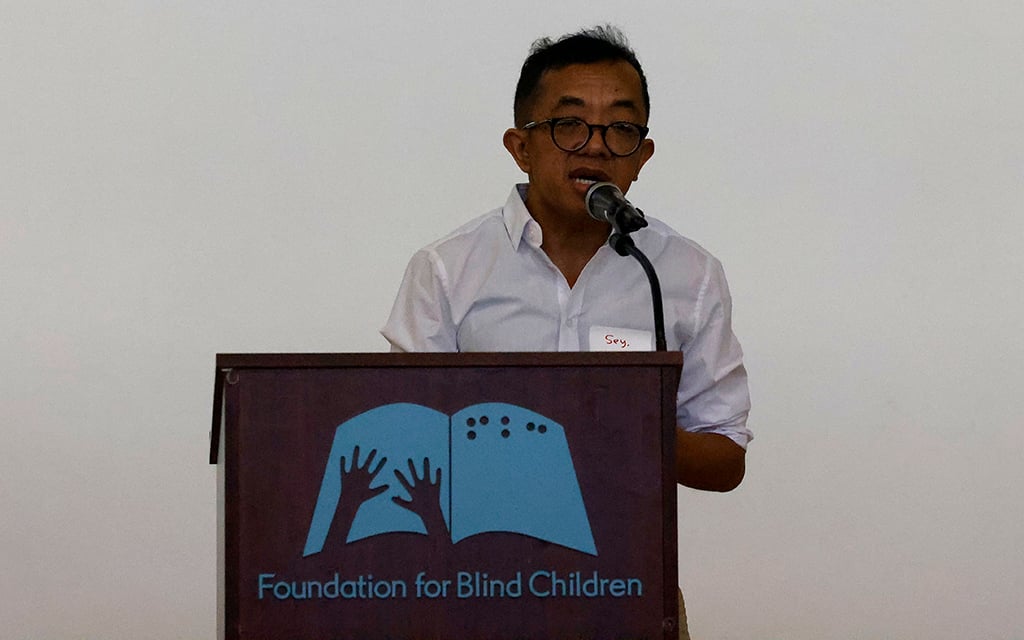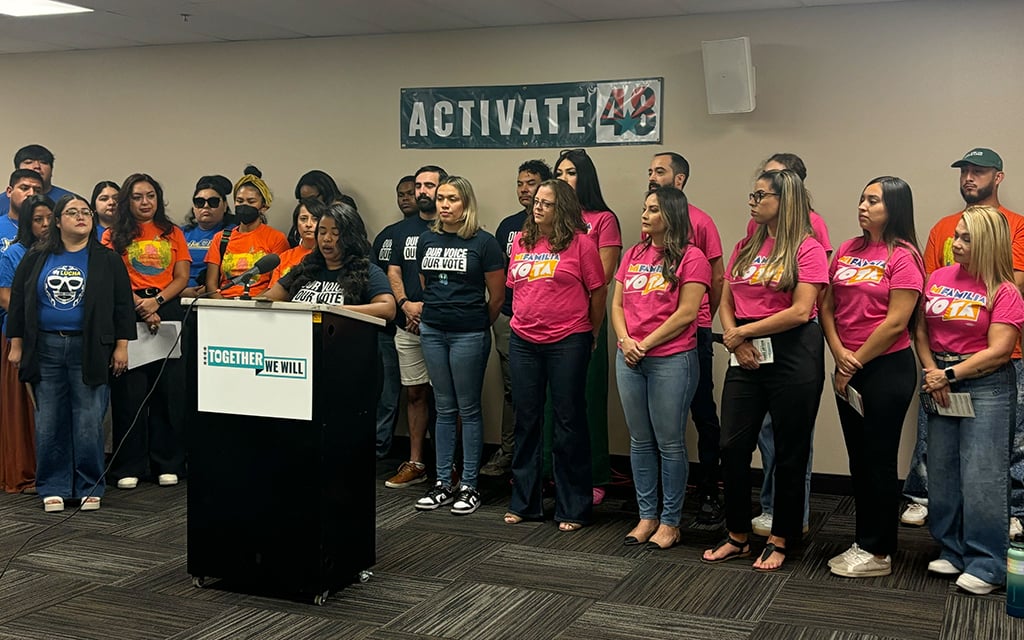PHOENIX – As the November general election approaches, Arizona is taking a significant step toward ensuring that voters with disabilities are fully prepared to participate in the democratic process.
On Monday, First Place AZ and the Foundation for Blind Children co-hosted Spark the Spectrum, a workshop to equip voters with disabilities with the knowledge and tools needed for Election Day.
The event, which aligned with National Voter Registration Day, was designed to familiarize attendees with voting equipment, accommodations and the overall voting process. It also served as a reminder of the Oct. 7 voter registration deadline.
“We are incredibly proud to be partners in this initiative to help increase awareness about voter registration and voter accessibility,” said Jared Kittelson, CEO of the Foundation for Blind Children. “Access for some is not OK, it truly is about access for all. There’s strength in all of us pushing in the same direction and supporting each other.”
The workshop comes at a pivotal moment, following the Arizona Court of Appeals decision in Wood v. Coconino in May. The ruling clarified that individuals under guardianship should not automatically lose their voting rights, a major shift from previous practices that had disenfranchised many voters with disabilities.
“I want to know when my ballot comes so I can get it filled out, get it mailed in, because it’s just so important to vote, and I feel like that’s the best way I can serve my country,” said Harry Goralnik, a registered voter with disabilities.
The Maricopa County Elections Department offers several accessible voting services, including large print and Braille ballots, which can be requested through its website, request.maricopa.vote. Additionally, in-person voters can use an accessible voting device at any of the more than 240 vote centers for the upcoming election.
The device features a touch screen or controller, contrast screen settings and a Braille-enabled, audio-tactile interface controller, ensuring a private and independent voting experience.
Denise D. Resnik, founder and president/CEO of First Place AZ, emphasized that while this election year is important, it’s just as important to focus on ongoing issues affecting neurodivergent individuals. “We want to make sure that you understand that this is an important election year, but so is the continuation of how we look at the spectrum of autism, disabilities and the spectrum between red and blue,” Resnik said as part of a panel discussion.
With over 110,000 U.S. children with autism transitioning to adulthood each year, according to First Place AZ, understanding their voting rights is important for these individuals and their support networks.
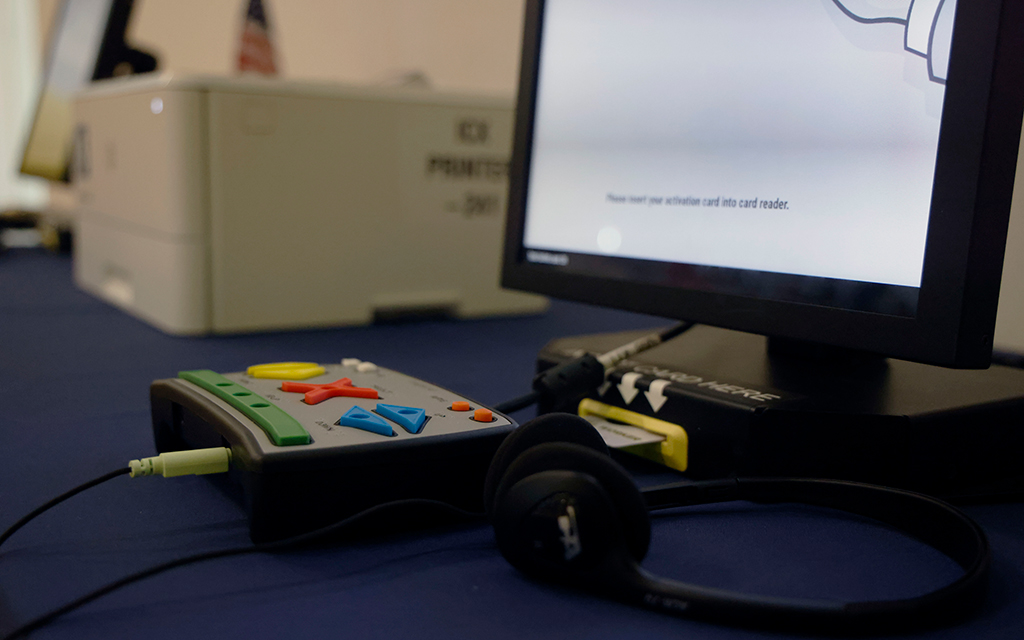
Accessible voting device’s are provided to help voters with disabilities familiarize themselves with the process of accessible voting in Phoenix, on Monday, Sept. 16, 2024. (Photo by Gabriel Garza/Cronkite News)
The Spark the Spectrum workshop is part of Vote the Spectrum, a campaign launched by First Place AZ in October 2023 to assist individuals with autism and intellectual or developmental disabilities navigate the voting process. Monday’s event marks the third accessible voting workshop hosted by Vote the Spectrum this year.
Jenniffer Jarvis, co-founder and director of operations for Epic Disability Advocacy, shared her connection to the event. She detailed her family’s efforts to secure voting rights for son Josh, who is under full guardianship.
Despite resistance from others, she and her family were determined to prove that Josh could pass the Arizona civics test – a crucial step to maintaining his right to vote. “This wasn’t just about passing a test, it was about proving Josh’s knowledge and skills to be an engaged citizen,” she explained. After months of preparation, Josh passed the test with a score of 96%.
However, the journey didn’t end there. Despite their hard work, the court dismissed their request to retain Josh’s voting rights, citing full guardianship as the reason.
“Josh’s story is just one example of a broader challenge, ensuring that individuals with disabilities have their voices heard, especially when it comes to fundamental rights like voting,” Jarvis said.
